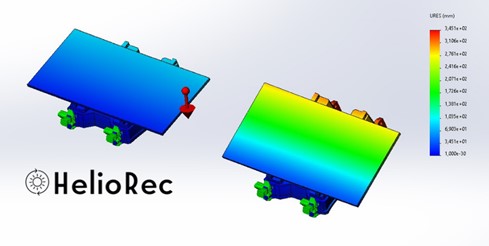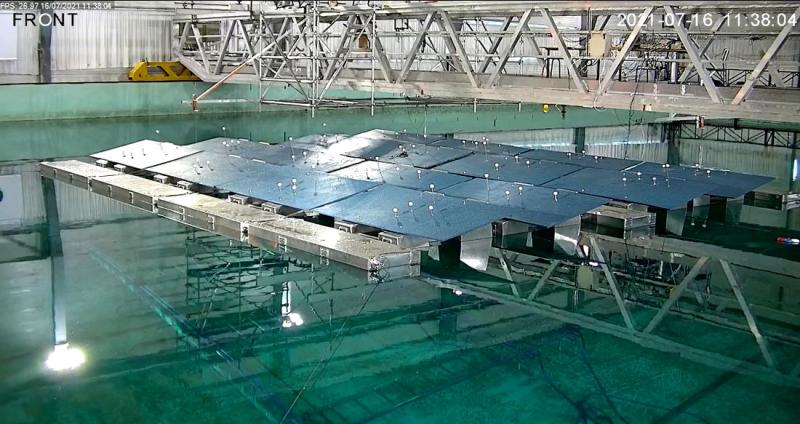French start-up Heliores has developed a new floater that is claimed to be particularly suitable for floating PV projects planned for extreme weather conditions.
The floater is called Hydro-lock and is able to host water, which gives it additional mass and, according to its creators, additional stability, without extra costs for ballast materials, such as metal or concrete. Each floater can host a single solar panel.
“The float can host any kind of solar panel with dimensions of up to 1000 x 2200 mm,” the company's CEO and founder, Polina Vasilenko, told pv magazine. “It is made with linear low-density polyethylene (LLDPE), which costs between €1.5 and €2 per kg. Manufacturing costs for our system reach around €4 per kg.”
According to the manufacturer, simulations with wind speed 44 m/s have shown the HelioRec’s floaters are 3.5 times more stable than conventional blow-molded floaters.

Image: Heliorec
“HelioRec’s floating system possesses a stackability functionality through which it is able to efficiently pack up the floaters while shipping them between our target location and the manufacturing firm,” Vasilenko went on to say. “This allows to use up to 50% less space in containers, thus, reducing logistics costs.”
According to her, the new tech also has a unique design of the connectors between the stackable floating elements that helps reduce mechanical stresses on the system as a whole.
The floaters are available in different shapes and colors. They were initially manufactured in Russia but production is currently being moved to an unspecified location in Estonia, from where the company will run its sales operations.
The floater has been recently used in a 10 kW project being developed at the port of Ostend, in Belgium, in cooperation with Greenpipe International. “For the project, we are using mono PERC modules with a power output of 410 W each from JinkoSolar and we will apply hydrophobic additive from Portuguese provider ChemiTek,” Vasilenko further explained.
The French company also recently signed a partnership agreement with Dutch maritime giant Van Oord to evaluate if floating solar arrays can be used to power unmanned survey vessels.
This content is protected by copyright and may not be reused. If you want to cooperate with us and would like to reuse some of our content, please contact: editors@pv-magazine.com.




2 comments
By submitting this form you agree to pv magazine using your data for the purposes of publishing your comment.
Your personal data will only be disclosed or otherwise transmitted to third parties for the purposes of spam filtering or if this is necessary for technical maintenance of the website. Any other transfer to third parties will not take place unless this is justified on the basis of applicable data protection regulations or if pv magazine is legally obliged to do so.
You may revoke this consent at any time with effect for the future, in which case your personal data will be deleted immediately. Otherwise, your data will be deleted if pv magazine has processed your request or the purpose of data storage is fulfilled.
Further information on data privacy can be found in our Data Protection Policy.